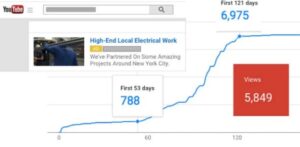
Case Study: YouTube Video Distribution Campaigns
National Law Firm This client had originally posted this video to YouTube on November 14, 2015, but wasdisappointed at the initial low number of views
Home » PPC / SEM

National Law Firm This client had originally posted this video to YouTube on November 14, 2015, but wasdisappointed at the initial low number of views

If you’re thinking about spending some of your marketing funds on ads to reach your target audience, you’ll want to spend your money in the
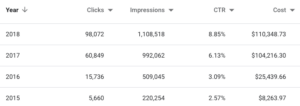
Background This nonprofit organization teamed up with the best and brightest minds in science, education, and technology to develop a better way to identify individual
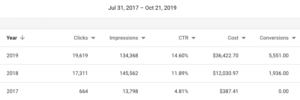
Background This nonprofit client had been managing their Google Ad Grants account themselves, with middle-of-the-road results. They looked to us to help them increase results

Google Ads conversion tracking is vital because it’s the most important collection of information needed for improving your Google Ads performance. Conversion tracking records how

Are you disappointed with your Google Ads ad positions? Does it feel like you’re paying more than you should, yet you’re always being outranked by
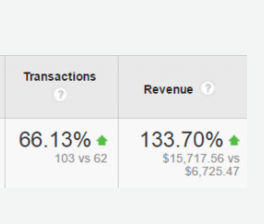
We were hired to overhaul an e-commerce account that the owners were managing internally since 2002. We started with a strategy meeting to identify highest
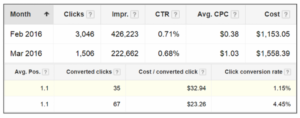
Prior to our account management, this account was managed and optimized by a hybrid effort comprised of 1. A different agency and 2. An in-house

Pam Ann Marketing was hired to professionally manage Google Ads for a dermatologist practice with four individual office locations along the entire east coast. The